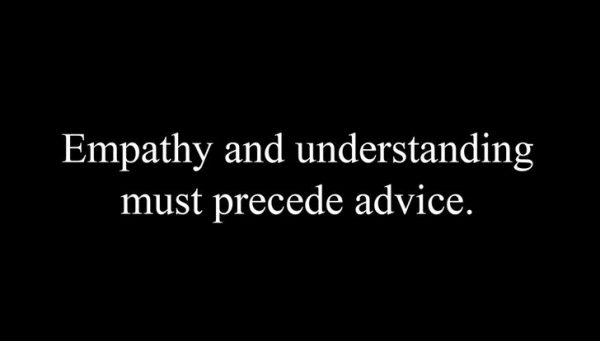Over the last month, I have been reintroduced to Little League Baseball. My observations of the very same situations from the perspective of a parent, as opposed to that of a child, are so very different! I have no reason to believe (and recent conversations with my father confirm) that things were any different in the world of little league baseball when I was a child, but I have been disturbed by some of the things I have seen of late. When I reflect upon my time as a player, I remember 1) wanting to win, 2) wanting to personally succeed (i.e. no fielding errors and a hit at every at-bat), and 3) wanting to learn the game. As a parent, my desire for my son is that he enjoys the very same (though, with much less emphasis on number one).
As I observe from the role of active parent (i.e. utility coach/dugout babysitter), I see something very different. I see “Grown Men” using kids as pawns to bully the other team by proxy, attempt to prove their perceived self worth, and relive any past glory (or compensate for a lack thereof) by “outcoaching” their peers. Fortunately, my son plays for coaches who emphasize teaching fundamentals over winning (likely the reason they have yet to win a game); however, that doesn’t make me blind to what is happening in the other dugouts.
Last Saturday I watched the end of the game before ours began. One particular coach was cautiously directing the efforts of his base runners. That is to say they were not turning ground balls hit to the pitcher into home runs by forcing errant throw after errant throw. Instead, they were running bases as if it was really a baseball game and not an effort to create failure for as many field players as possible. [Side note: There is a big difference between experiencing failure (teaching) and creating failure (demeaning).] After the game, I made it a point to tell the coach how much I appreciated his coaching philosophy, unknowingly initiating the following conversation:
Him: “Thanks. We were losing, so I wanted to make sure we didn’t give them any free outs. If the situation was different, I would have been much more aggressive.”
Me: “That seems to be the general approach of every coach in this league.”
Him: “If you don’t just keep running the bases, you’ll lose every game.”
Me: “That’s the problem. Coaches are too focused on winning and have no regard for teaching.”
Him: Puzzled look; Walked away (end of brief conversation)
As an involved parent, I feel it is my responsibility to expose my son to as many things as possible so that he can then choose to pursue whichever activities truly interest him. My personal experience gives me reason to believe he can learn just as much (if not more) on the athletic field as he can in the classroom. (Plus, I have found the lessons learned on the field are usually far more relevant to “real life.”) I have no aspiration for him to be a professional athlete or attend college on an athletic scholarship, nor do I care if he makes a single “All-Star Team.” Success on the athletic field (I believe) is: having fun while learning how to be part of a team; working hard to achieve the goals we set; building meaningful friendships; understanding that we learn as much (arguably more) from failing as we do from succeeding; becoming self-confident; and understanding what it means to be gracious, regardless of the outcome.
I will spend as many weekends at the – insert sports venue – as my son chooses, so I can do my best to help him focus on the true spirit of youth sports. I just hope he remains as oblivious to what too many coaches are doing as I evidently was when I was his age. As I migrate to official coach once these 7/8-year-old kids reach the point when they are ready to truly play baseball, I will do my part to undo much of the “coaching” done at this level, focus on fundamentals and help these children to enjoy true success through sports instead of giving them a false sense of accomplishment based purely on the failures of others. Until then, I will continue to advocate on behalf of the players, while helping the coaches to understand their actions are undermining the true teaching objectives, and short term “successes” (i.e. stacking their roster and exploiting the physical limitations of 45-70 pound 7/8-year-olds, so they win by 15+ runs) are not preparing any of the kids for longterm success. I hope more of our coaches realize this is another case where the means is the end.
I do wonder how these coaches perform in the workplace, how they lead their subordinates, how they cultivate teamwork, and how they define their own personal/professional success. Truth is we are not building baseball players on the diamond, we are helping to shape tomorrow’s leaders…where success is measured very differently than some coaches are helping these young men to believe.
- What are your memories of youth sports?
- As a parent, what observations may be different the second time around?
- How might we ensure the right life lessons are learned through a youth sports experience?




Well said. As a coach for my daughters' girls AYSO teams my goal is to teach them the game techniques and rules, improve sportsmanship and teamwork, and ultimately to have fun and appreciate the experience.
I measure my success on the degrees at which they play hard, leave the practice and games with a sense of participation and accomplishment, and play again the next year.
We have coaches in this "non-competitive" league that run up the score and conspire to get the best players on their teams – so I have a problem with that but it is generally okay.
The one part of your words with which I would modify – we are not "helping to shape tomorrow's leaders" – not all of them will be leaders. Some will lead – some will be followers. In "real life" there are more followers than leaders. Learning the skill to be a contributing member (not a sheep) but not THE leader is an equally valuable life lesson.
You sound like a coach for whom I would like my son to play and I use your very success measures when I coach soccer. I think we are likely saying the same thing with regard to "tomorrow's leaders." When I think of leadership, I look at it more from a situational standpoint. Even the lowest man on the totem pole at work, leads his own life and/or leads his child. Years ago, I followed more than I lead. Now I lead more than I follow, but I do follow plenty. That said, I do agree with your statement and appreciate your thoughtful comment
Katie joined her soccer team five years ago, along with several other "leftover" girls who were either unknown to the other coaches or joined the league after the sign-up period.
The first year they didn’t win a game. Only a couple of the girls were good at the sport. But they had fun and the coach was patient, understanding, let them have fun, and taught fundamentals.
As the years have passed, the team membership has remained pretty consistent with a couple additions and a couple losses. Playing as a team year after year, establishing friendships, learning each other’s strengths and weaknesses, the girls have formed into a genuine team and have won progressively more games.
This year, after four games, they are undefeated, 3-0-1, and lead in goals. Yesterday, they played to a 2-2 tie against a team that hasn’t been scored against in THREE years. I was so happy for the girls on Katie’s team, but I was sad for the other girls. Some of them were in tears. Some of the tears were undoubtedly because their streak was broken, but some of them were crying because their coach was actually berating them – 11 year old girls.
After the game I went over the that coach and told him he needed to calm down and asked him if he couldn’t see what he was doing to them. He told me to “mind my own business”, not in so many words.
Guess whom I ran into at work today… Turns out he is a fellow O-4, in a different service. I wonder how he treats his subordinates at work. I’ll be watching.